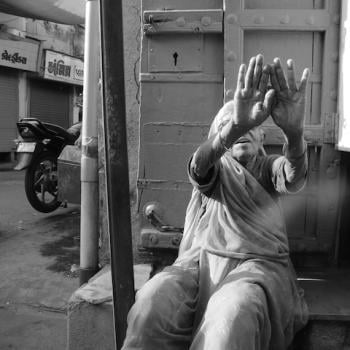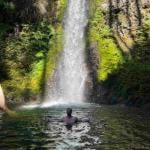 Duckweed and turtles can change your life.
Duckweed and turtles can change your life.
At one of my favorite parks, there is a small pond nestled among towering trees and shrubs, with a discrete opening to a gentle slope for those who venture closer. Over time, the pond became completely covered with this unidentifiable green plant stuff.
I had likened this green stuff to some form of “algae,” acknowledging my inner cluelessness.
And on one of my recent strolls, I thought, “This area could really be special, beautiful-even magical-if this pond could be rid of this ugly green stuff. Either keep the pond and clean it or just get rid of this eyesore.”
Evidently, the pond did not meet my forest aesthetic expectations. I continued my inner complaint, “How can anything live in it? This pond is useless.”
The moment the words “useless” entered my mind, something caught my eye. I saw a group of turtles, covered in the green stuff, huddled together on tall grassy plant in the water.
They extended their heads toward the sun, basking in all the warmth, as the sunlight reciprocated the appreciation.
My stomach tightened.
I felt worse than my opinion of the green stuff.
Just low-down.
In my heart resided a turtle-killer for the sake of vanity.
I felt more ignorant than when I called the green stuff, algae.
For the rest of my walk, I reflected on what had just occurred.
On another day, I returned. I observed even more turtles out. Three distinct groups basked in the early morning sun.
More questions emerged, and I wanted to get a start in a sound direction before I searched the internet. Considering that they have been quite knowledgeable in my past encounters, I went to the visitor center to speak to a staff member.
Upon entering the building, I saw a staff worker who had just entered, too. She obliged my inquiry.
I began, “What is the green stuff on the pond along Pine trail? It looks like algae, but I think my observation is inaccurate.”
She thought for a few seconds, and replied, “I believe it is duckweed.”
She responded to my other questions, discussing the ins and outs of managing duckweed and the ponds on the property.
I felt thrilled and grateful.
Thrilled to expand my view of the world.
Grateful that I had an opportunity to face my narrow thinking and ignorance.
(Oh, and I used to not feel thrilled and grateful when I perceived that I got something wrong. Not. At. All. Presently, I do not feel this way all the time, but way more times than backindaday.)
Here are three key life lessons and reflections that I want to share with you from my ignorance and exploration about duckweed and turtles.
Lesson 1: The Useless Is Useful
Learning about duckweed (genus lemna) challenged me to see the usefulness in things I deemed useless.
Duckweed are small, yet quite invasive. They can double their mass every one-two days and can produce up to 30 dry tons per acre. Too much duckweed can begin to reduce the oxygen levels in a pond, so that the aquatic creatures residing within die.
The pond central to this post did not have fish, so the duckweed takeover was not a critical concern.
Nevertheless, how can duckweed be useful? Is it just a vegetative predator to be controlled or eliminated?
Well, even something as challenging as duckweed has uses.
The International Lemna Association (ILA) decided to find viable uses for this vegetation.
You read correctly.
I found out that there is an organization dedicated to duckweed.
Duckweed are used for non-GMO human nutrition, fisheries, animal feed, treating polluted water, fertilizer, genetic research, and bioenergy.
According to the ILA’s website, “With a protein content of over 50% and a similar amino acid profile to that of soy, duckweed can produce eight to ten times more protein per acre than soy.”
(Rejoice, all ye vegans. Rejoice! Book of Whateva 5:27)
Sooo… ummm… yeah.
The useless green murky plague stretched across an otherwise beautiful Waldenesque pond is not useless.
It is not good for nothing.
It is good for something.
So are you.
Have you or someone you care about ever felt useless?
How often have we considered certain groups of people in our world as hopeless and useless?
Have you ever considered your situation or past as useless? Something shameful? Something in need a of fixing?
I have good news.
Your good for nothing is good for something, too.
Something that you deem as a useless nuisance can be the impetus for forming organizations and the catalyst and substance for positive change the world. The very thing that seemed to take life away could be the very thing to promote it.
It could even the feed a hungry world. Your so called mess is the food people are hungering for as the answer to their own mess. Nothing is wasted or useless in nature of things.
Lesson 2: It Is Not Over.
The turtles and duckweed remind us that adversity or a shady past does not dictate our purpose and who we are.
It is not over for us.
Remember the huddle of turtles basking in sun? Because water turtles need a certain amount of sun each day, they come up from the waters to receive it. Too much sun can kill them and not enough can lead to illnesses. Therefore, despite the duckweed drawing more oxygen from the water, unlike fish, the turtles can leave the water.
They can survive in a pond where little to no life can thrive. These marvelous creatures do not need constant sun on them, so the filter of duckweed on the water might work to their advantage.
And this makes me think about you and me.
You are so amazing that you can thrive in spaces and places that would have killed or broken someone else.
Not you.
You could have allowed past mistakes to envelope your present and chart your trajectory, but you chose otherwise.
I think your resiliency is a pretty big deal.
You might be going through a troubling storm right now, and yet, all the life duckweed spreading over your world, seeming to steal away all of the precious air from your dreams, is all being worked out for your good and the good.
Like the turtles I observed, you keep rising up to bask in the sun. You radiate light in this world. By choosing to rise up each day makes you walking courage and hope.
I must confess that aside from the tortoise and the hare story, I did not think turtles were so inspirational, but here we are.
Honey, no matter what kind of duckweed tries to cloud your life, it is not over for you.
Lesson 3: Accept Your Humanity.
Duckweed can symbolize accepting our own humanity and its complexity. This lesson is an every evolving one for me.
I notice that we, particularly humans in the West, tend to want to leave out nuance. Many of us do not allow for the complexity of humanity.
For example, a politician we want to frame as the epitome of evil, can also be a kind neighbor mother, father, friend, brother, or sister.
It is easier for us to construct narrow stories of people than stretch ourselves to accept their humanness. Creating limited images of others in our imaginations prevents us from facing our inner struggles with people we dislike.
After finding out the usefulness of duckweed, some of us might easily cheer, “Hooray, duckweed are awesome!” and file it away in our minds under the category of good things.
However, this would be inaccurate. Too much duckweed, as aforementioned, can be detrimental, particularly in water where aquatic wildlife live. With this knowledge, we might respond, “Duckweed are horrible! ” and categorize it as bad.
In reality, duckweed are duckweed.
They can be both constructive and destructive.
The same applies to valuing the diversity of humanity.
At times, we need to understand the history, location, economics, community, language patterns, family, etc. to get a sense of a person.
As you might know, it is not enough to look at someone’s clothes, listen for dialects, observe markers of gender and race to form an accurate perspective about a person. Your limited clues do not mean you really know the person.
It takes prolonged engagement to understand more of the context and landscape of an individual’s inner life. The more we do this, the more a person becomes human to us and not just an amalgamation of identities.
As a matter of fact, you have a richer appreciation and understanding of all of our intersecting identities.
Furthermore, all of us have strengths and underdeveloped areas—these things do not make us good or bad—it makes us complex creatures, simply us.
It makes you—You. Human.
Conclusion
Daily, I am reminded of my complex humanity—giving and kind one minute and on the next minute, talking my inner scrappy southern gal off the wall because I am ready to tell someone off messing for with my friend.
You and I possess forms of duality, and this duality makes life more enlivening.
Also, all of us possess ignorance and have limits in our worldviews. And it takes experiences that conflict with our philosophical framework to help us realize these limits or our ignorance.
By the way, please do not condemn your limits or ignorance.
If you are blessed with a situation where you reach the limits of your knowledge and face your ignorance, I encourage you to rejoice for another opportunity to expand.
You might become transformed by something as useful and useless as turtles and duckweed in an obscure pond.















